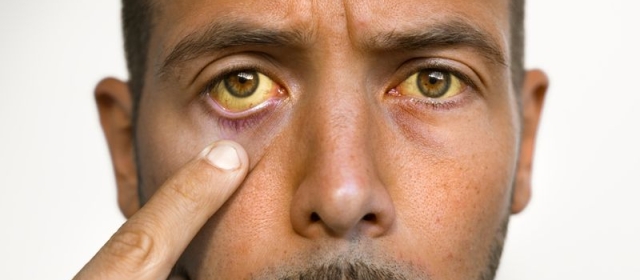
All Sexual Health Topics
Upcoming Events

- Sexual Health Topics: Men’s Sexual Health, Women’s Sexual Health
An erogenous zone is any part of the body that elicits sexual arousal when touched. Although most people think of the genitals when it comes to sexual touch, other parts of the body are erogenous zones as well and can bring a person great sexual pleasure. In fact, a 2016 study that mapped the preferred erogenous zones of 704 participants found that the entire body can be sensitive to sexual touch, but erogenous zones vary from person to person.

- Sexual Health Topics: Men’s Sexual Health, Women’s Sexual Health
For busy couples facing seemingly endless demands upon their time, it may feel like sex always takes a back seat to work, education, chores, parenting, and other important priorities. Certainly, the ebb and flow of sexual activity is normal in a long-term relationship, and putting off sex may even be necessary in times of major life changes such as soon after childbirth. Nevertheless, if it is consistently difficult for you and your partner to find time for sex in your day-to-day lives, the following are a few things you can try.

- Sexual Health Topics: Mental Health & Psychology, Sexual Orientation & LGBTQIA+ Health
Discrimination against members of minority groups such as the LGBTQIA+ community can have serious ramifications when it comes to the overall health and well-being of these individuals. (LGBTQIA+ stands for lesbian, gay, bisexual, transgender, queer/questioning, intersex, asexual, and all other gender and sexual identities).

- Sexual Health Topics: Men’s Sexual Health, Women’s Sexual Health
Masturbation is a common and normal sexual activity, but many people still feel uncomfortable talking about it or even ashamed about doing it. Unfortunately, old stigmas and myths/misinformation continue to surround the practice of masturbation which, in reality, is a healthy, free way to experience sexual pleasure. Below are some of the most common myths about masturbation, as well as the facts and health benefits of this sexual activity.

- Sexual Health Topics: Men’s Sexual Health, Women’s Sexual Health, Sexually Transmitted Infections/Diseases (STIs/STDs)
Hepatitis is an infection that causes inflammation of the liver. It is usually caused by a virus, but it can sometimes be caused by alcohol consumption, drug use, or certain medical conditions. The most common types of viral hepatitis are hepatitis A, B, and C.

- Sexual Health Topics: Men’s Sexual Health, Women’s Sexual Health, Sexually Transmitted Infections/Diseases (STIs/STDs)
Sexually transmitted infections (STIs) are common and impact people all around the world. Nevertheless, many people continue to feel ashamed about discussing their STI status with current or prospective sexual partners, being tested for STIs, or testing positive for an STI. It is important to remember that getting an STI is not a negative reflection on your character, and many STIs are curable. Still, being aware of your STI status and that of your sexual partner(s) is an important and necessary step for preventing the spread of STIs, making safe, informed decisions, and maintaining your sexual and overall health.

- Sexual Health Topics: Women’s Sexual Health
Female orgasmic disorder (FOD) is characterized by delayed, infrequent, or absent orgasm despite sufficient stimulation and adequate emotional and mental sexual arousal during at least 75% of sexual experiences for women. This term is also used to describe a marked decrease in orgasm intensity.

How Are Minority Groups Disproportionately Affected by Sexual Health Concerns, and What Can Be Done?
- Sexual Health Topics: Men’s Sexual Health, Women’s Sexual Health
Racial and ethnic minority populations bear a disproportionate burden of overall health concerns due to factors such as persistent health disparities, discrimination, stigma, education, geographic location, and poverty or low-income levels. Unfortunately, sexual health concerns also impact these communities at a higher rate than other communities. Importantly, these health disparities are not in any way caused by a person’s ethnic background or heritage, but rather by the societal factors and barriers to care that make it more difficult for minority groups to access important health information and quality health care services.

- Sexual Health Topics: Men’s Sexual Health, Women’s Sexual Health
Many people feel that drinking alcohol helps them to relax, lowers their inhibitions, and allows them to feel more confident during sex. Research confirms that, when used in moderation, alcohol is often associated with increased socialization, improved feelings of personal attractiveness and attraction toward others, and reduced inhibitions. While it may seem appealing, this dynamic may not always be beneficial for a person’s sexual health, and excessive alcohol consumption can be especially detrimental to a person’s sex life in a number of ways. (Keep in mind that moderate alcohol consumption is generally defined as no more than one drink a day for women and no more than two drinks a day for men).

- Sexual Health Topics: Women’s Sexual Health
Yes, usually it is safe to have sex during pregnancy. The muscular walls of the uterus and the amniotic fluid surrounding the developing fetus protect it from outside forces, so engaging in sexual activity during a normal pregnancy does not harm the baby or the mother.



